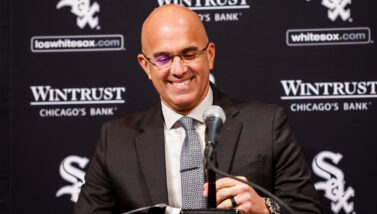Career Readiness: Equipping Students for the Workplace of Today and Tomorrow

The first reaction when most of us hear the term, ‘career readiness’, is often to associate it with strong technical skills, such as computer programming or digital marketing. And while technical skills are vital, they alone are insufficient for success in the current and future workplace. Research shows that skills, such as communication and teamwork, are just as important as technical knowledge, with around 77 percent of employers saying that these so-called soft skills are just as important as hard ones.
At Excelsior, our aim is to encourage our students to develop both the technical skills that will allow them to contribute to their chosen profession, but also those soft skills, that will enable them to excel in their future careers. In this article, I want to tell you why Excelsior means business when it comes to career readiness.
What is Career Readiness?
As a result of a study based on extensive research among employers, the National Association of Colleges and Employers (NACE), defines the career readiness of college graduates as,
“the attainment and demonstration of requisite competencies that broadly prepare college graduates for a successful transition into the workplace.”
Career readiness has often been discussed as important for students in both higher education and the public arena, but before NACE provided a definition, there was little consensus about what it meant. NACE pulled together a task force of HR and education professionals who identified a list of competencies that together comprise the key ingredients of career readiness.
The Eight Competencies of Career Readiness
The eight competencies of career readiness reflect the range of soft skills that equip the student to meet the challenges of the modern workplace and also give them both the agility and the capacity to embrace change in the workplace of the future.
The eight competencies of career readiness are:
- Critical Thinking/Problem Solving: Analyze and interpret information using good logic and reasoning to synthesize interrelations and connections among various factors to solve problems.
- Oral/Written Communications: Express and present ideas in an articulate and concise manner, and be an active listener.
- Teamwork/Collaboration: Work well with others and negotiate and manage conflicts.
- Information Technology Application: Use current and appropriate technology to solve a problem or complete assigned tasks.
- Leadership: Lead the team and leverage the strengths of each member to accomplish a common goal/mission.
- Professionalism/Work Ethic: Demonstrate effective and productive work habits, such as being on time, being polite, being generally pleasant and helpful, dressing appropriately and taking responsibility for one’s own actions.
- Career Management: Identify desired career goals in according to ones’ skills, strengths, and experiences, identify areas for development and then take steps required to achieve those goals. Evaluate and adjust those goals through ongoing navigating career options and opportunities for career advancement.
- Global/Intercultural Fluency: Understand and appreciate differences among all people and interact with others in an open-minded, inclusive, and respectful manner.
For a more detailed definition of each competencies, please visit the official NACE website.
These transferrable soft skills are crucial in the workplace, regardless of the profession or industry that the student enters, but, traditionally, college students have not been given as many opportunities to develop and hone these skills as they have the technical skills. Over the past few years, however, articles and news reports have identified an increasing ‘gap’ between the perception of college graduates’ preparedness in these skills, compared to the experience of employers when students enter the workplace.
Excelsior Addresses the Career Readiness ‘Gap’
This ‘gap’ is something that the School of Business and Technology and Excelsior College have been working diligently to address – we take pride in preparing career-ready graduates as one of the School’s top priorities.
Specifically, there are three main approaches to support and ensure career readiness of our graduates: content, credential, and community.
- Content: There are various types of learning activities integrated into our courses, such as team projects, individual or team presentations, debate, problem based assignments, and hands-on activities. These activities require students to apply both technical and soft skills to solve a problem either individually or in a team setting.
- Credential: All these soft skills are embedded in the program outcomes. The graduates are expected to successfully demonstrate these competencies upon graduation.
- Community: Engaging faculty, staff, students, and alumni to form a sense of community is crucial to provide ongoing support. To this end, we have four different virtual student organizations where faculty, alumni and staff actively interact with students on current issues and trends in the job markets for their chosen fields. Additionally, the College’s Career Center offers many resources and services to students and alumni such as self-assessment, trends for major careers, career counseling, and job search and preparation.
As the workplace has become more service oriented, the importance of soft skills to an organization is growing and our courses and programs increasingly reflect those changes. Maribeth Gunner, Director of Career Services at Excelsior College, has said that
“recruiters and employers rarely make the hiring decision solely based on whether the person knows how to do the job, they also want people who know how to handle themselves at work and relate to customers and colleagues.”
Equipping Our Students for their Future Careers
Career readiness is a critical issue in higher education and Excelsior has been proactive in infusing it throughout our programs. It calls for higher education institutions, like Excelsior, to take a coordinated approach to integrate soft skills training into the student learning experience. As Excelsior continues to provide opportunities for students to develop and apply these critical soft skills, we believe we are preparing well-rounded college graduates who can smoothly and successfully transition into both the workplace of today and tomorrow.
By embracing career readiness, we believe we are equipping our students for the future.


